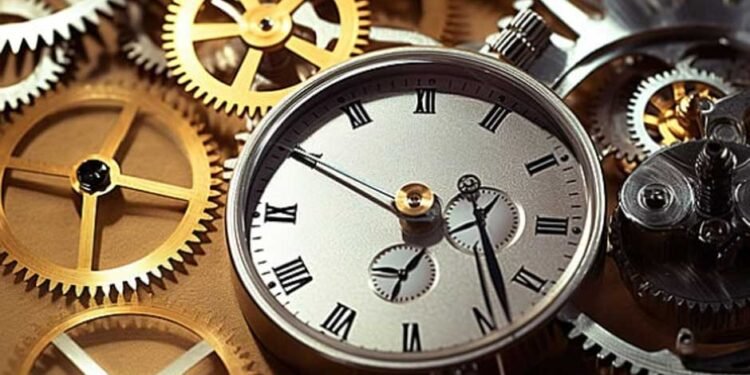Mechanical clocks have long been treasured for their intricate craftsmanship, precise engineering, and timeless appeal. Whether you own a vintage grandfather clock, a delicate mantel clock, or an elegant wall clock, maintaining its intricate components is crucial for longevity and accuracy. But how can you tell when your mechanical clock needs professional servicing? Let’s explore the signs that indicate a tune-up is due, why regular maintenance is essential, and how professional servicing can keep your cherished timepiece ticking perfectly.
Signs That Your Mechanical Clock Needs a Tune-Up
- Irregular Timekeeping: A well-maintained mechanical clock should keep accurate time with only minor deviations. If your clock is running too fast, too slow, or stopping unexpectedly, it may be due for a professional adjustment. Changes in humidity, dust buildup, and worn-out components can all affect timekeeping.
- Unusual Noises: Mechanical clocks produce rhythmic ticking sounds, but if you notice grinding, scraping, or rattling noises, something may be amiss. These sounds could indicate loose parts, inadequate lubrication, or wear and tear on gears and springs.
- Difficulty Winding or Setting: If the winding mechanism feels stiff, too loose, or unusually resistant, this is a red flag. The clock’s mainspring or winding gears may need attention. Similarly, if setting the time becomes difficult or the hands feel loose, professional servicing can help prevent further damage.
- The Pendulum Stops Swinging: Consistent swinging is key to proper function for clocks with pendulums. If your clock’s pendulum stops frequently or doesn’t maintain its rhythm, issues such as an imbalanced mechanism, dirt buildup, or worn-out suspension springs might be at play.
- Visible Wear or Dirt Accumulation: Dust, debris, and aged lubrication can hinder a clock’s precision. If you see grime inside the clock’s movement or on the gears, it’s time to have a professional clean and lubricate the components.
The Importance of Regular Mechanical Clock Maintenance
Mechanical clocks operate with hundreds of moving parts that interact harmoniously to keep time. Unlike modern quartz clocks, which rely on batteries and electronics, mechanical timepieces require manual maintenance to prevent deterioration.
- Lubrication Prevents Excessive Wear: Lubrication is crucial for reducing friction among moving parts. Over time, the oil used in clock mechanisms dries out, causing increased resistance and wear on gears and pivots. A professional clockmaker can properly clean old lubricant and reapply fresh oil to keep things running smoothly.
- Preventing Costly Repairs: Ignoring minor issues can lead to severe damage. If left unchecked, gears can become misaligned, springs can break, and essential components may wear out prematurely. Routine tune-ups help catch small problems before they turn into costly repairs.
- Maintaining Aesthetic and Sentimental Value: Many mechanical clocks are heirlooms, passed down through generations. Regular servicing ensures they remain both functional and visually appealing. If your clock features intricate woodwork, glass panels, or hand-painted details, professional cleaning and care will help preserve its beauty.
- Protecting Investment Value: Antique and luxury mechanical clocks can appreciate in value over time. Professional servicing can keep your timepiece in excellent condition and maintain or even increase its worth. Collectors and enthusiasts prioritize well-maintained clocks when making purchases or valuations.
What Happens During a Professional Mechanical Clock Tune-Up?
A professional clock tune-up involves a meticulous process that ensures every component of your timepiece is in optimal condition. Here’s what to expect when you take your clock to a professional for servicing:
- Thorough Inspection: The clockmaker will assess the overall condition of your clock, checking for worn parts, loose gears, and signs of damage. They will also examine the case, glass, and dial to ensure there are no structural issues.
- Cleaning the Movement: Dirt and old lubricants are removed using specialized solutions. The movement is often taken apart for deep cleaning, ensuring all gears, pinions, and pivots are free from debris that could affect performance.
- Lubrication and Adjustments: Once cleaned, each pivot point is carefully lubricated with high-quality clock oil. The clockmaker will also adjust the escapement, balance wheel, and any other components that may affect accuracy.
- Testing and Calibration: After reassembly, the clock undergoes testing to ensure it keeps accurate time. Professionals may let the clock run for several days to observe its performance and make any final adjustments.
How Often Should You Service Your Mechanical Clock?
The frequency of professional servicing depends on the type of clock and its usage. As a general rule:
- Grandfather Clocks: Every 3–5 years
- Mantel and Wall Clocks: Every 4–7 years
- High-End or Antique Clocks: Every 2–4 years (due to delicate parts and historical significance)
However, if you notice any of the warning signs mentioned earlier, don’t wait for a scheduled service—seek professional help immediately.
DIY Maintenance Tips for Mechanical Clock Owners
While professional servicing is essential, there are steps you can take to keep your mechanical clock in good condition between tune-ups:
- Keep It Clean: Regularly dust the exterior of your clock using a soft microfiber cloth. Avoid using harsh cleaning solutions on delicate finishes.
- Wind It Properly: Follow the manufacturer’s instructions for winding your clock. Overwinding can strain the mainspring, while underwinding can affect accuracy.
- Maintain a Stable Environment: Mechanical clocks are sensitive to humidity and temperature changes. Place your clock in a stable environment, away from direct sunlight, heating vents, or damp areas.
- Monitor Timekeeping Accuracy: Check your clock’s accuracy every few weeks. If it gains or loses more than a few minutes over a month, it may need an adjustment.
- Handle with Care: When moving your clock, be gentle. Always secure the pendulum and weights to prevent internal damage.
Investing in the Longevity of Your Mechanical Clock
A mechanical clock is more than just a timekeeping device—it’s a piece of history, craftsmanship, and artistry. Proper care and regular tune-ups ensure it remains a functional and beautiful centerpiece for years to come. If you’ve noticed any signs of wear or inaccuracy, now is the time to schedule a professional servicing.
Whether your clock is an antique heirloom or a modern mechanical marvel, giving it the attention it deserves will keep it ticking with precision and grace for generations to come.












